Israel needs an enduring strategy that includes Hamas as a valid partner for peace.
With heated debates about the progress of reconstruction efforts in the Gaza Strip, it is vital to revisit one of the crucial issues regarding the latest Gaza conflict: the demilitarization of the Palestinian territory. Israel and Palestinian armed groups finally reached a truce on August 26 after 50 days of incessant fighting. The timing of the offensive, one month after the formation of a Palestinian unity government, demonstrated Israel’s refusal to recognize Hamas as a legitimate part of that government. Israel’s stated aims during and after the war have included demilitarization of Gaza and the destruction of the tunnel system and rocket arsenal, while Hamas and other armed factions want to end the blockade of Gaza.
It is important to note that Palestinian power dynamics have been affected by the significant shifts in the geopolitical realities in the Middle East and North Africa as a result of the Arab Uprisings. Hamas has lost key allies and funding sources in the wake of Mohammed Morsi’s downfall in Egypt and due to strained relations with Iran and Syria in the context of the Syrian Civil War.
The internal turmoil in many Arab states has also led to a downplaying of the Palestinian issue, as reflected in their muted responses to carnage caused by Operation Protective Edge. Israel has, in a sense, turned out to be an unintended beneficiary of the Arab Uprisings, with states like Egypt and Saudi Arabia finding their interests strategically converging with Israel to form a common resistance against Islamists. However, the current convergence of interests, especially in a region as volatile as the Middle East, is also transient. Israel’s allies today could well be arming Hamas tomorrow. Moreover, despite losing key allies, Hamas continues to be financially supported by Turkey and Qatar; for instance, the latter sought to pay the wages of Gazan workers.
Demilitarizing Gaza: Only a Temporary Solution
During Operation Protective Edge, Israeli Prime Minister Benjamin Netanyahu’s foreign policy adviser, Dore Gold, pointed to successful demilitarization efforts in the past, including the removal of President Bashar al-Assad’s chemical weapons in Syria. Yet Israel’s demilitarization strategy is, at best, an impractical and temporary solution. To demilitarize Hamas is one thing, but to ensure that the effective guerilla organization remains demilitarized will require the cooperation of the international community, already embroiled in world conflicts and reluctant to further entangle itself.
Demilitarization is not a permanent state of affairs, as was also demonstrated by Israel’s Operation Pillar of Defense in 2012, when Hamas was significantly disarmed, and still managed to rearm with even more sophisticated weaponry than before.
An international donor conference in Cairo has pledged $5.4 billion in reconstruction aid to Gaza. But reconstruction efforts must be constantly monitored, and a reliable mechanism is needed to ensure that materials and money transferred are only used for civilian purposes. The United Nations has brokered a reconstruction deal with Israel and the Palestinian Authority (PA), involving the Gazan private sector and the PA, where the latter would ensure that the material is not used for rearmament and tunnels.
However, this agreement does not broach the issue of disarmament. The European Union (EU) has agreed to reboot its Border Assistance Mission to oversee the Rafah border crossing between Gaza and Egypt. It is likely that all this would mean significant restrictions on civilian infrastructure and housing. Critics say the complex monitoring system will prevent immediate aid from arriving in Gaza. Also, even when such monitoring mechanisms were in place — for example, via the UN Peacekeeping Force’s (UNIFIL) efforts in Lebanon in 2006 — they failed to prevent Hezbollah‘s rearmament. Demilitarization is not a permanent state of affairs, as was also demonstrated by Israel’s Operation Pillar of Defense in 2012, when Hamas was significantly disarmed, and still managed to rearm with even more sophisticated weaponry than before.
At the center of Israel’s strategy of demilitarization is force, and as the contemporary history of the Israeli-Palestinian conflict reveals, forceful and violent strategies rarely lead to resolution and peace. It is ironic that a highly sophisticated, nuclear state should undertake a campaign to demilitarize a movement which, even while armed, poses no real threat to it. The numbers are indicative of this. In the latest conflict, there were more than 2,100 Palestinian casualties, compared to 73 on the Israeli side, including seven civilians. By launching its offensive, Israel has diminished its international standing, as manifest in large-scale anti-Israel protests in several countries, including Britain, India and Australia. The larger questions still remain unanswered, including the issue of who governs Gaza once it is “successfully” demilitarized. Would Israel then recognize Hamas and negotiate with it in the capacity of an integral part of the Palestinian government?
Intra-Palestinian contention has rendered the peace talks obsolete, and has been a substantial obstacle to attaining the Palestinian goal of national liberation and statehood. There are persistent challenges regarding internal Palestinian dynamics, such as mutual distrust, physical divisions and diverging tactics. Yet there is greater likelihood of the unity government withstanding this time, owing to strong pragmatic considerations on both sides: Fatah’s legitimacy crisis partly owed to continuous Israeli settlement building, and the economic situation in Gaza resulting in heightened pressure on Hamas. Israel would benefit from shredding its rejectionist attitude and giving the Fatah-Hamas government a chance to perform. Indeed, despite the souring of relations due to the PA’s non-payment of Gaza’s public servants, the two factions achieved a breakthrough in their negotiations in September, with the unity government set to take full control of Gaza.
As analyst Ed Husain declares: “In a new Middle East, where popular opinion matters more than ever before, to demand that people condemn Hamas is a political nonstarter.” Professor Alon Ben Meir’s observations about the 2011 Fatah-Hamas reconciliation agreement still hold true, as the rapprochement implies that Hamas is willing to behave more peacefully, as a continuation of violence would derail the agreement. And this is conceivable, given the fact that Fatah itself had armed factions like Tanzim and Force 17 that were involved in terrorism, until abandoning violence later on.
In a meeting with PA President Mahmoud Abbas after Operation Protective Edge, Hamas political leader Khaled Meshal reportedly agreed to accept a Palestinian state within the 1967 borders.
Isolating Hamas has only proven to be counterproductive and, with its recent offensive, Israel has temporarily damaged hopes to test Palestinian unity and see whether it could indeed have positive repercussions. Former US President Jimmy Carter and former Irish President Mary Robinson stated in this context that Israel has rejected an opportunity for peace, and called on the UN Security Council “to mandate an end to the siege.”
Palestinian Democracy as the Way Forward
Palestinian democracy and a functional leadership are key factors to attaining peace between Israelis and Palestinians. Both sides should commit to an enduring ceasefire and push for general Palestinian elections. As Jackson Diehl of The Washington Post concedes, elections have the potential to decrease Hamas’ stranglehold over Gaza, create new leaders and break the vicious cycle of conflict in the region. However, veteran defense writer Amos Harel argues: “[Hamas] will remain in power in Gaza and [will] be the key partner in any future agreement.”
Either way, inclusion into the democratic process will certainly minimize Hamas’ motivation to fight. In a meeting with PA President Mahmoud Abbas after Operation Protective Edge, Hamas political leader Khaled Meshal reportedly agreed to accept a Palestinian state within the 1967 borders.
Israel’s current approach is reactive and fraught with ambiguity. Its military strategy must be linked to an enduring vision that can avoid returning to a destructive deadlock. Instead, it should aid the resolution of the Palestinian conflict for which Israel’s international reputation is continuously at stake, and which compels Israel to maintain an expensive missile defense system. What Israel needs is a durable and farsighted strategy to end the occupation and resolve the conflict, not a provisional respite amid skirmishes. The demilitarization of Gaza — with unclear potential for success — would only be a temporary and provisional tactic rather than a lasting solution.
This time, the truce has the potential to be more lasting, thanks to the political realignment in the Middle East and the formation of the Palestinian unity government. The pragmatic way forward is the inclusion of Hamas in the Palestinian leadership and as a valid partner for peace. This will give the unity government a chance to demonstrate whether it is capable of responsible governance. Otherwise, despite the funding provided by the international community, anything rebuilt in Gaza today could well be destroyed again tomorrow.
The views expressed in this article are the author’s own and do not necessarily reflect Fair Observer’s editorial policy.
Support Fair Observer
We rely on your support for our independence, diversity and quality.
For more than 10 years, Fair Observer has been free, fair and independent. No billionaire owns us, no advertisers control us. We are a reader-supported nonprofit. Unlike many other publications, we keep our content free for readers regardless of where they live or whether they can afford to pay. We have no paywalls and no ads.
In the post-truth era of fake news, echo chambers and filter bubbles, we publish a plurality of perspectives from around the world. Anyone can publish with us, but everyone goes through a rigorous editorial process. So, you get fact-checked, well-reasoned content instead of noise.
We publish 2,500+ voices from 90+ countries. We also conduct education and training programs
on subjects ranging from digital media and journalism to writing and critical thinking. This
doesn’t come cheap. Servers, editors, trainers and web developers cost
money.
Please consider supporting us on a regular basis as a recurring donor or a
sustaining member.
Will you support FO’s journalism?
We rely on your support for our independence, diversity and quality.


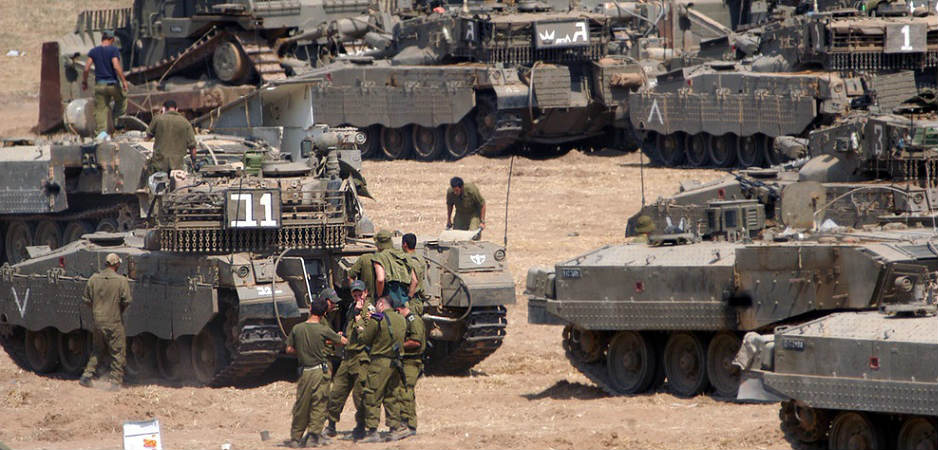


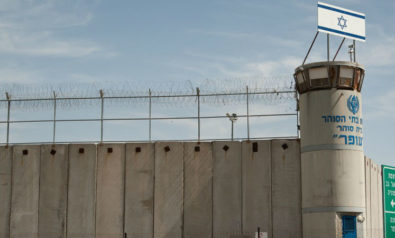

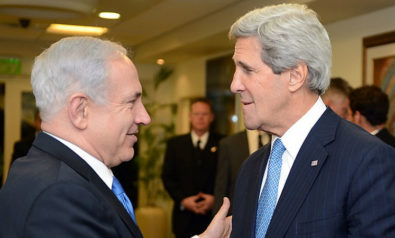


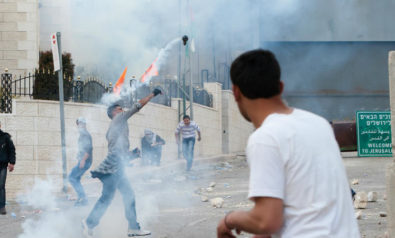
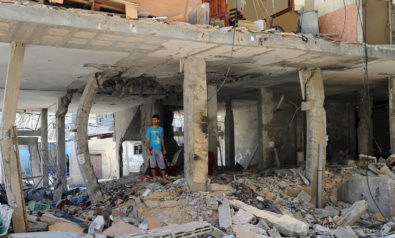
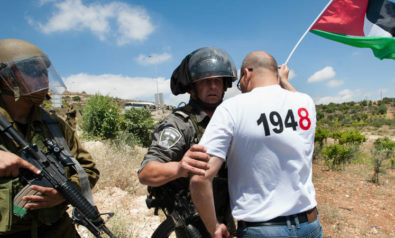
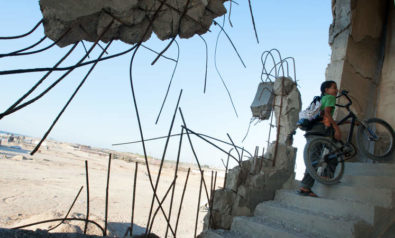

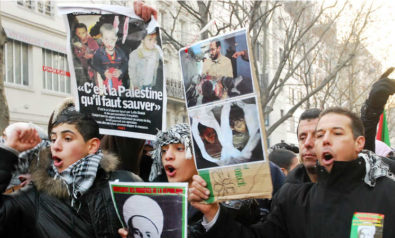


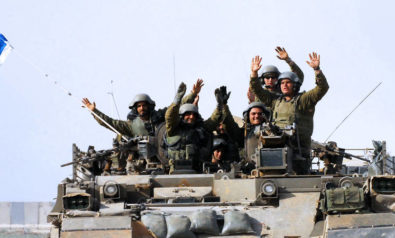
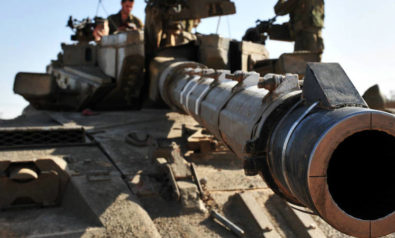
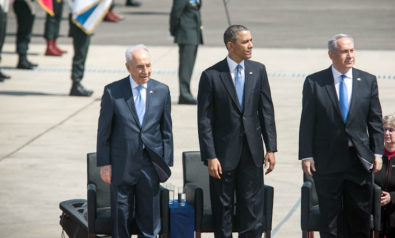
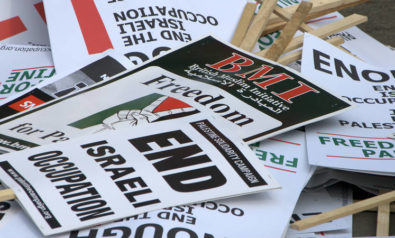
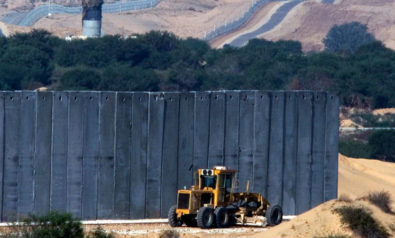
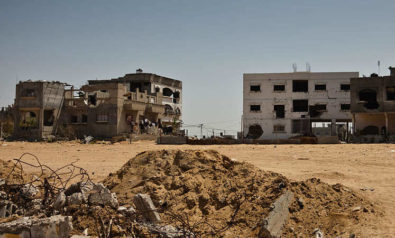

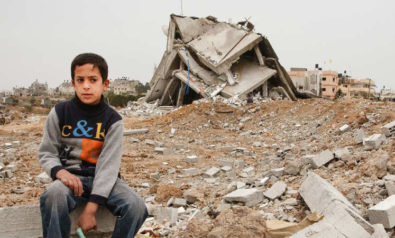
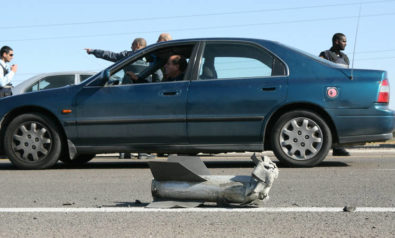
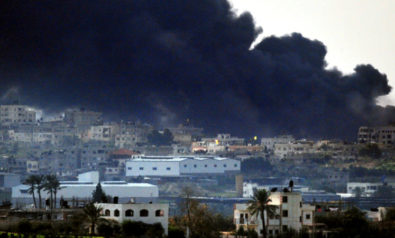
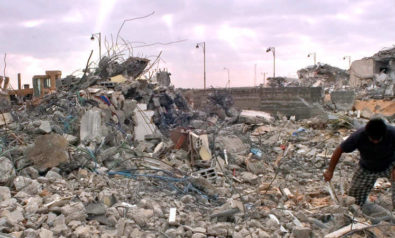
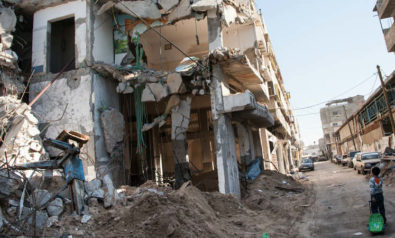


Comment
When Hamas accepts a two-state solution, when they change their charter (the one that calls for the destruction of Israel), when they recognize the existence of an Israeli state, perhaps then could be a valid peace partner. A necessary precondition for Hamas is that they actually want peaceful coexistence with Israel. The evidence of such a thing is just not there, militarized or de-militarized. Without arms, then Hamas terrorists will drive a car through a crowded transit stop. What then? Should Hamas be banned from cars?
The timing of the offensive last summer was dictated less by the new so-called unity government and more by the murders of three Israeli teenagers by Palestinian Arabs affiliated with Hamas.
As for the democratic process, Fatah and Hamas can hold elections at their choosing. Why haven’t they?